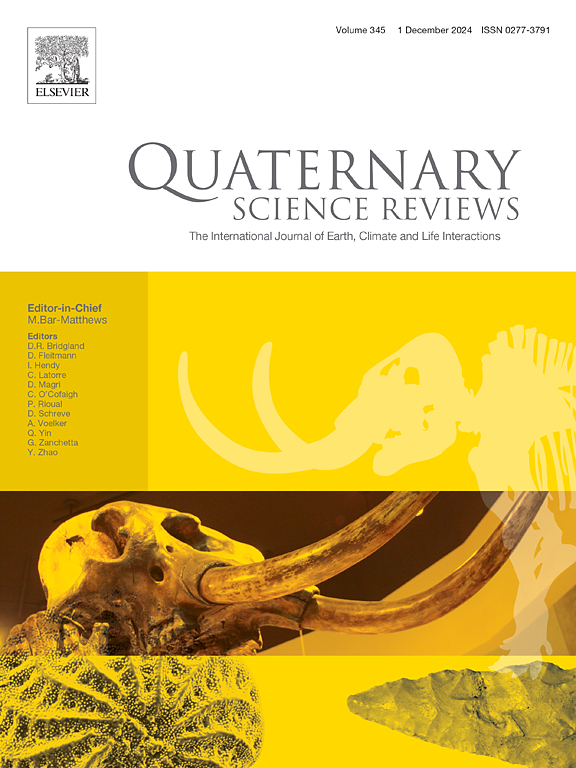Cultural transformations were key to long-term resilience of hunter-gatherer societies in the coastal Atacama Desert
IF 3.3
1区 地球科学
Q1 GEOGRAPHY, PHYSICAL
引用次数: 0
Abstract
Hunter-gatherers thrived for millennia along the coastal Atacama Desert of northern Chile, often hailed as a prime example of resilience. In this paper, we examine which cultural strategies were preserved or evolved in response to significant environmental changes over the past 10,000 years, focusing on well-documented shell midden sites in coastal northern Chile (Caleta Vitor, ∼18°S). Our findings reveal that different social groups not only restructured the extraction and consumption of marine resources, by diversifying their fishing tools but also innovated their worldview through funerary practices. These cultural shifts coincided with periods of variable marine productivity and major demographic transitions. We argue that these economic adaptations acted as strategies that enabled hunter-gatherers and fishermen to persist and thrive over time. Moreover, despite increasing environmental pressures and the growing influence of inland agriculture social systems, these communities maintained their traditional ways of life.
文化转型是阿塔卡马沙漠沿海狩猎采集社会长期恢复能力的关键
智利北部阿塔卡马沙漠沿岸的狩猎采集者繁荣了数千年,他们经常被誉为适者生存的典范。在本文中,我们研究了哪些文化策略在过去1万年的重大环境变化中得以保存或发展,重点关注智利北部沿海地区(Caleta Vitor, ~ 18°S)有充分记录的贝壳堆遗址。我们的研究结果表明,不同的社会群体不仅通过多样化的捕鱼工具重构了海洋资源的开采和消费,而且通过丧葬实践创新了他们的世界观。这些文化转变与海洋生产力变化和重大人口转变时期相吻合。我们认为,这些经济适应作为一种策略,使狩猎采集者和渔民能够随着时间的推移而持续生存和繁荣。此外,尽管环境压力越来越大,内陆农业社会系统的影响越来越大,这些社区仍保持着传统的生活方式。
本文章由计算机程序翻译,如有差异,请以英文原文为准。
求助全文
约1分钟内获得全文
求助全文
来源期刊

Quaternary Science Reviews
地学-地球科学综合
CiteScore
7.50
自引率
15.00%
发文量
388
审稿时长
3 months
期刊介绍:
Quaternary Science Reviews caters for all aspects of Quaternary science, and includes, for example, geology, geomorphology, geography, archaeology, soil science, palaeobotany, palaeontology, palaeoclimatology and the full range of applicable dating methods. The dividing line between what constitutes the review paper and one which contains new original data is not easy to establish, so QSR also publishes papers with new data especially if these perform a review function. All the Quaternary sciences are changing rapidly and subject to re-evaluation as the pace of discovery quickens; thus the diverse but comprehensive role of Quaternary Science Reviews keeps readers abreast of the wider issues relating to new developments in the field.
 求助内容:
求助内容: 应助结果提醒方式:
应助结果提醒方式:


